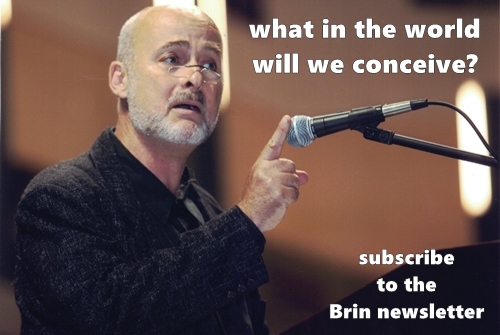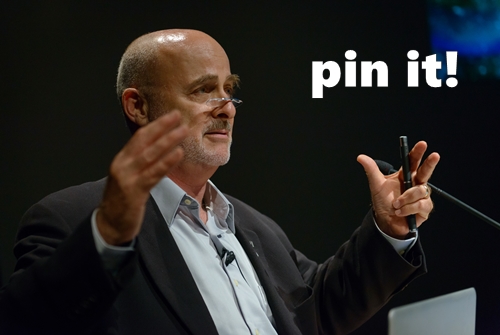
This is an "unusual suggestion" I posted following the election of Barack Obama, when it seemed that everybody — columnists, political sages, bloggers and citizens — was writing missives about 'what I'd do if I were president.' The official transition team even set up an online suggestion box to sample this eager tidal wave of participatory democracy.
Everybody else is already talking about health care. So why would I weigh in? Three words. Start with kids.
The greatest mistake Hillary Clinton made, way back in 1993 — the calamitous opening she gave the neocons, who then came roaring into power — was to try fixing the health mess all at once, in a sweeping act of policy-wonkdom. It only gave her foes an opening to ridicule the complex and centralized federal hubris of her plan. Moreover, it ignored some basics of American psychology. Our inherited frontier ethos idolizes a type of individualist self-reliance that — even when it is mostly illusory — we often cling to at all costs. One result: an attitude that adults ought to find their own way, sink or swim.
Or, at least, enough Americans felt that way to reject any thought of an overall federal system. But Americans are a lot less callous, and effectively more "socialistic," when it comes to kids! An overwhelming majority support public education and (more narrowly) backed affirmative action in schools. Because it is far easier to persuade us that all young people should be helped to the same starting line than it is to suggest fixing the final results of the race.
Let's chew on that distinction, for a moment. "All men are created equal." That isn't the same as ensuring equality of outcomes. (Bill O'Reilly's relentless false accusation is that liberals aim at leveling outcomes — an out-and-out, bald-faced lie that is supremely laughable, especially since capitalism and competitive markets always do better under Democrats.) Nevertheless, "All men are created equal" does suggest that... well... no child should be crippled before the starting gun is fired.
Face it. If Hillary in 1993 had said: Let's just concentrate now on taking care of all the kids, she would have succeeded, easily. Newt never would have had his killer issue. And by now, after 14 years, the Child Health Care system would have had enough kinks ironed out to be covering some adults, too.
And the grownups who were left with private, for-profit insurance? They would be pushing their companies against a wall, demanding they improve or else!
Key point: President Obama has plenty on his plate already and very little spending money. Yet people expect something to be done about health care. Hence, I suggest that he at least consider this option of starting with the kids.
This approach has several advantages:
FIRST: It can be done swiftly. No complicated insurance company illusions. Simply go to Canadian-style single payer just for those under 18. Perhaps bill all parents on their income tax for a basic, FICA-like premium. We'll all love it, especially if the cost is lower than the kid-premiums in our present policies.
SECOND: Conservatives wouldn't dare say no. They'll scream about "slippery slopes," but the American psyche would be on Obama's side this time. So would a hundred million worried parents.
THIRD: Taking millions of children out of the equation should terrify the insurance companies into cooperating on some next step.
FOURTH: All kids would get uniform preventive care, at relatively low cost, attacking the crisis at its most basic level. Moreover, there would not be an issue of European style age-based care rationing, since children get maximum care, no matter what. That quagmire can be put off for a while.
All right, that's my unusual suggestion about health care. I don't expect either side to like it at all! But that's what I do.
THE END

about this article
"Insure the Children" (published in full here) was one of a series of 21 "Unusual Suggestions" Brin posted following the election of 2008, when it seemed that everybody — columnists, political sages, bloggers and citizens — wrote missives about "what I'd do if I were president."
Copyright © 2009 by David Brin. All rights reserved.
join David Brin's discussions
David Brin blogs at Contrary Brin and posts social media comments on Facebook, Twitter, Quora, and MeWe specifically to discuss the political and scientific issues he raises in these articles. If you come and argue rationally, you're voting, implicitly, for a civilization that values open minds and discussions among equals.
a world for children and other precious resources
letting others have their say
Elisabeth Rosenthal, An American Sickness: How Healthcare Became Big Business and How You Can Take It Back
T. R. Reid, The Healing of America: A Global Quest for Better, Cheaper, and Fairer Health Care
Steven Brill, America's Bitter Pill
David M. Cutler, Your Money or Your Life
Paul Starr, Remedy and Reaction
Marty Makary MD, The Price We Pay
Uwe E. Reinhardt, Priced Out
#AmazonCommissionsEarned
a brief intro to author David Brin

novels
David Brin's science fiction novels have been New York Times Bestsellers, winning multiple Hugo, Nebula and other awards. At least a dozen have been translated into more than twenty languages. They range from bold and prophetic explorations of our near-future to Brin's Uplift series, envisioning galactic issues of sapience and destiny (and star-faring dolphins!).
Learn More
shorter fiction
Short stories and novellas have different rhythms and artistic flavor, and Brin's short stories and novellas, several of which earned Hugo and other awards, exploit that difference to explore a wider range of real and vividly speculative ideas. Many have been selected for anthologies and reprints, and most have been published in anthology form.
Learn More
Contrary Brin blog
Since 2004, David Brin has maintained a blog about science, technology, science fiction, books, and the future — themes his science fiction and nonfiction writings continue to explore.
Learn More
social media influencer
Who could've predicted that social media — indeed, all of our online society — would play such an important role in the 21st Century — restoring the voices of advisors and influencers! Lively and intelligent comments spill over onto Brin's social media pages.
Learn More
scientist
David Brin's Ph.D in Physics from the University of California at San Diego (the lab of nobelist Hannes Alfven) followed a masters in optics and an undergraduate degree in astrophysics from Caltech. Every science show that depicts a comet now portrays the model developed in Brin's PhD research.
Learn More
transparency expert
Brin's non-fiction book, The Transparent Society: Will Technology Force Us to Choose Between Freedom and Privacy?, continues to receive acclaim for its accuracy in predicting 21st Century concerns about online security, secrecy, accountability and privacy.
Learn More
speaker & consultant
Brin speaks plausibly and entertainingly about trends in technology and society to audiences willing to confront the challenges that our rambunctious civilization will face in the decades ahead. He also talks about the field of science fiction, especially in relation to his own novels and stories. To date he has presented at more than 200 meetings, conferences, corporate retreats and other gatherings.
Learn More
future/tech advisor
Brin advises corporations and governmental and private defense- and security-related agencies about information-age issues, scientific trends, future social and political trends, and education. Urban Developer Magazine named him one of four World's Best Futurists, and he was appraised as "#1 influencer" in Onalytica's Top 100 report of Artificial Intelligence influencers, brands & publications. Past consultations include Google, Microsoft, Procter & Gamble, and many others.
Learn More



